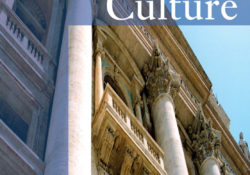tandfonline.com har udgivet en rapport under søgningen “Teacher Education Mathematics”: Abstract This article examines the relationship between two fields of study, Italian Studies and Digital Humanities (DH), by documenting projects that employ digital or computational methods in the study of Italian language, literature, history, and the arts. In a complementary fashion, the author outlines the analytical questions of Italian scholars that have potential to advance inquiry in DH. A final section is devoted to contextualizing DH within the practice of Italian Studies at the institutional, program, and department levels by drawing on research of course offerings and a survey circulated in August 2017. The overall finding is that the area of overlap between DH and Italian Studies is intellectually rich, with increasing (yet still sparse) opportunities to develop specialization in… Continue Reading →
Like this:
Like Loading...
tandfonline.com har udgivet en rapport under søgningen “Teacher Education Mathematics”: A brief history of the Italian marine biology Link til kilde
Like this:
Like Loading...
eric.ed.gov har udgivet: The main purpose of the present research is examining the Turkish and Italian students’ perceptions of the concept of “mathematics teacher” through metaphors. The study group of the research consists of 167 Turkish and 112 Italian students, the total of 279 students in the same age group. Students were asked to use another concept defining what “mathematics teacher” meant for them and to explain why. For this purpose, the data of the research were collected by each student’s completing the statement “A mathematics teacher is like …, because ….” Content analysis technique was used to analyze and interpret the obtained data. According to the findings of the research, the students developed a total of 255 valid metaphors. These metaphors are divided into 9 different conceptual categories according… Continue Reading →
Like this:
Like Loading...
tandfonline.com har udgivet en rapport under søgningen “Teacher Education Mathematics”: Abstract Abstract Many scholars have problematised the meaning that is nowadays attributed to the word salon, even if most of them still use it as a concept to study a specific female type of sociability. The regularity of the meetings, and the mixtures of gender, social groups and nationalities are mostly mentioned as the defining characteristics of a salon. Since these have a quantitative fundament it is surprising that most scholars only use qualitative methods. Analysing the receptions of the Italian countess Ersilia Caetani-Lovatelli, this article shows the value of quantitative research. It helps disproving old historiographical assumptions that are mostly related to the social composition and functioning of the gatherings. It also leads to a plea for using of… Continue Reading →
Like this:
Like Loading...
eric.ed.gov har udgivet: This study investigates how students and researchers shape their knowledge and perception of educational topics. The mindset or forma mentis of 159 Italian high school students and of 59 international researchers in science, technology, engineering and maths (STEM) are reconstructed through forma mentis networks, i.e., cognitive networks of concepts connected by free associations and enriched with sentiment labels. The layout of conceptual associations between positively/negatively/neutrally perceived concepts is informative on how people build their own mental constructs or beliefs about specific topics. Researchers displayed mixed positive/neutral mental representations of “teacher”, “student” and, “scientist”. Students’ conceptual associations of “scientist” were highly positive and largely non-stereotypical, although links about the “mad scientist” stereotype persisted. Students perceived “teacher” as a complex figure, associated with positive aspects like mentoring/knowledge transmission but… Continue Reading →
Like this:
Like Loading...
